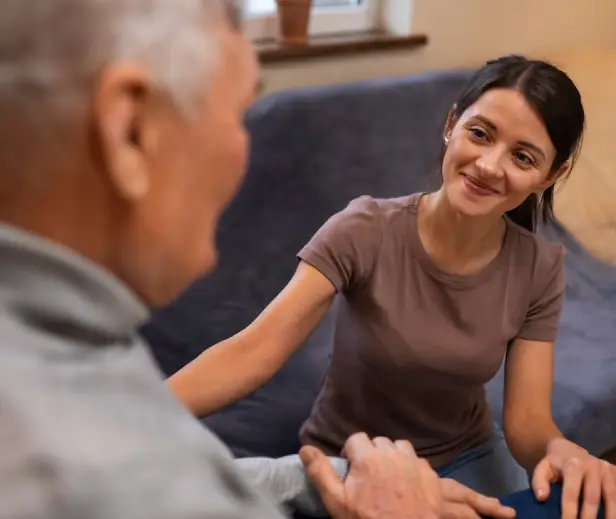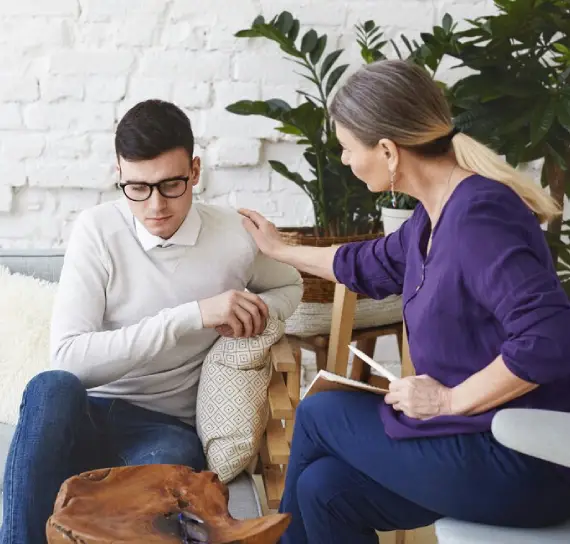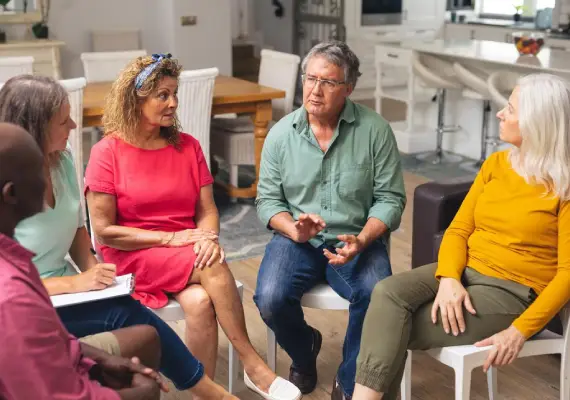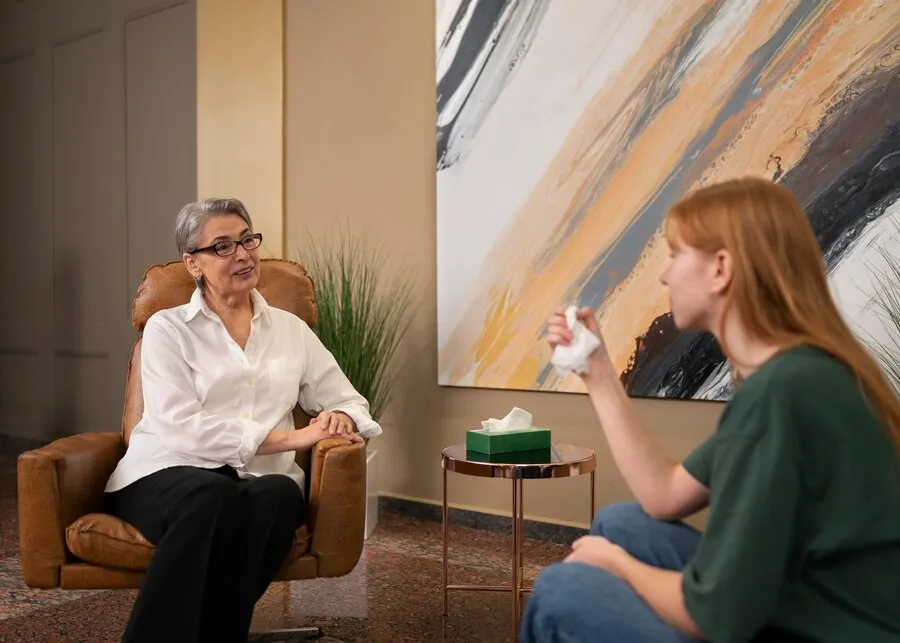Residential Mental Health Care for Adults
Residential care for adults with mental health disorders is pivotal in an individual’s recovery and stabilization. Disorders such as depression, bipolar disorder, schizophrenia, or anxiety create daily hurdles for the person in initiating others and taking care of oneself. These disorders will not take long to escalate to a level of isolation, crisis, or hospitalization when untreated or neglected.
With access to effective mental health treatment and a well-organized living situation, lives can be transformed. Divine Care Concept LLC stands firm in its conviction of supplying a caring, structured, and personalized treatment program for adults suffering from mental illness. As an international leader in the field of mental health residential treatment centers, Devine Kare Concept LLC endeavors to provide a humane and safe atmosphere in which our clients can heal, grow, and reach their fullest potential.
You can find the lights of answers for yourself by either setting up an appointment with a professional or our health system, which leads you there in finding answers regarding the well-being of an individual.

Understanding Mental Health Disorders in Adults
Millions of adults in the United States have mental illnesses. According to the National Institute of Mental Health (NIMH), approximately 1 in 5 U.S. adults experiences some form of mental illness in any given year. They may be severe or not, but most often, they need treatment and care in general to stabilize.

Some of the most prevalent adult mental illness diseases include:
- Depression: persistent sadness, lack of energy, and loss of interest in activities.
- Bipolar Disorder: extreme mood swings ranging from mania to depression.
- Schizophrenia: disordered thinking, hallucinations, and impaired functioning.
- Anxiety Disorders: excessive fear or worry, often impacting social or work life.
- Post Traumatic Stress Disorder (PTSD): emotional distress after trauma.
- Obsessive-Compulsive Disorder (OCD): intrusive thoughts and repetitive behaviors.
- These conditions can further impede an individual from social functioning and maintaining relationships, performing daily activities, or gaining employment. They can destroy an individual's life if left untreated. That is where professional adult mental health care facilities come into play. With appropriate treatment, one can have their symptoms under control and lead a quality life.
What are Mental Health Residential Treatment Centers?
Mental health residential treatment centers, often run in communal living, are described as mental health residential treatment centers that sometimes provide structured, round-the-clock care for an adult patient suffering from serious mental illness. They are at an intermediate level between independent living and hospitalization, with a treatment setting in which clients stabilize, heal, and learn life skills.
Significant benefits of mental health residential treatment centers:
- Individualized treatment plans
- Presence of mental health professionals and licensed therapists
- Therapy sessions on a daily basis (individual, group, and family therapy)
- Medication management
- Activities of daily living support
- Life skills training and education
- At Devine Kare Concept LLC, our residential home combines compassionate care with evidence-based interventions such as cognitive behavior therapy (CBT), trauma-informed care, and holistic wellness modalities.

Exploring Adult Mental Health Care Facilities
There are a number of adult mental health treatment facilities, each of which treats varying levels of need. Being aware of the differences can assist individuals and families in making informed choices.
Residential Mental Health Patient Homes
Home-like settings with long-term, 24/7 care.
Mental Health Adult Group Homes
Group living with peer interaction and structured support.
Adult Psychiatric Residential Care Facilities
Intensive psychiatric treatment for severe psychiatric disorders.
Mental Health Adult Rehabilitations Centers
Emphasis on therapy, recovery, and rehabilitation back into society.
All facilities are of varying levels of care. But they all share one thing in common—to create a safe, supportive environment where healing and personal growth can occur. Trained staff, individualized support plans, and therapeutic treatment programs are some of the facilities’ minimum features.
Residential Homes for Mental Health Patients
Residential homes for mental health patients provide a home-like and non-clinical environment for those requiring around-the-clock care. Such houses provide:
- A homelike environment, which de-stresses the environment commonly found in clinical settings.
- Personalized care plans that address the unique needs of the individual resident.
- 24-hour supervision and support to provide security and stability.
- Favorable conditions for community engagement and socialization.
- We offer at Devine Kare Concept LLC that our residential houses provide dignity, comfort, and a feeling of belongingness, which are the centerpoints in the recovery process of a person.
Mental Health Group Homes for Adults
Mental health group homes for adults are group homes for residents where individuals with mental illness live in a supportive and supervised setting. These homes emphasize:
Peer support and social interaction
Structured routine and responsibilities
Life skills training, such as cooking, budgeting, and self-care
Professional access to mental health
Group homes provide residents with ways of managing their symptoms as well as becoming independent and building self-esteem. Group homes are helpful in laying down a solid base for long-term recovery.
Adult Psychiatric Residential Care
- Adult psychiatric residential care provides intensive therapeutic treatment in home-like settings to adults with serious mental illness. The programs include:
- 24-hour psychiatric supervision and support
- Detailed assessment and personalized treatment
- Medication titration and management
- Emotional support and crisis intervention
- Our residential psychiatric care at Devine Kare Concept LLC is symptom stabilization-based, empowerment, and self-awareness with ongoing resources for wellness.


Mental Health Rehabilitation Centers for Adults
- Mental health rehabilitation centers for adults offer highly structured recovery, education, and skill-building. They are typically the second step after intensive therapy or hospitalization. Adult mental health rehabilitation centers provide:
- Emotion and behaviour health counselling sessions
- Vocational guidance and support
- Relapse prevention and coping
- Reintegration into work and community support
- The rehabilitation centres play a crucial role in enabling the patient to live independently with proper management of their mental health.
Frequently Asked Questions
Ans. This refers to a 24/7 structured living arrangement for adults with mental illness where the intent is to promote stability, recovery, and life skills.
Ans. Residential treatment centers can help those adults with moderate to serious mental illness conditions who require continuous care and therapy for stability to benefit greatly.
Ans. Supervised living with others, rehearsal of daily routine, and training in the direction of independent living complement life for an adult living with mental illness(depression or schizophrenia, for instance) in a group.
Ans. Evaluation of psychiatry, medication management, individual and group therapy, crisis intervention, and daily activity support for stabilization and improvement of mental health are offered in adult psychiatric residential care.
Ans. Devine Kare Concept LLC combines one-on-one care, top-notch staff, and caring communities that are committed to long-term recovery, learning life skills, and education on how to receive mental health treatment.
Conclusion
Mental illness is terrifying to live with, but assistance is obtainable. There are Residential care facilities for adults with mental health disorders that can be taken by mentally ill adults that provide a safe, structured, and supportive path toward health. Through mental health group homes, residential homes, or rehabilitation centers, it is the environment that makes the greatest difference.
At Devine Kare Concept LLC, we strive to serve adults at each step of their mental care journey. With our experienced professionals, customized treatment programs, and welcoming facilities, we offer an atmosphere where every individual will be treated with the personalized care and respect he/she deserve.
Take the first step toward healing today. Contact Devine Kare Concept LLC to learn more about our programs and how we can assist you or someone you care about on the road to healing.
Need more information?
📞 Call us now or 📧 Send a message to speak with a care specialist at Devine Kare Concept LLC.